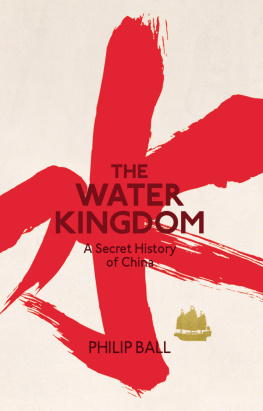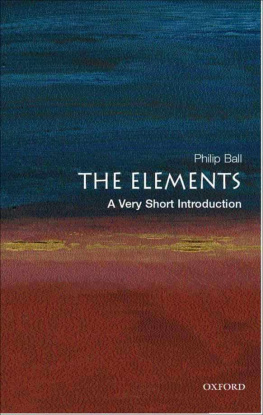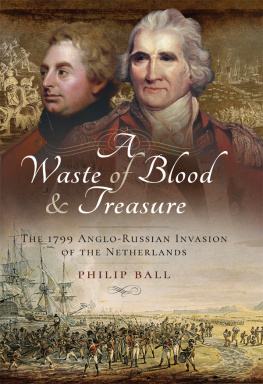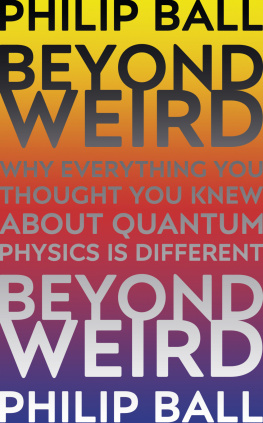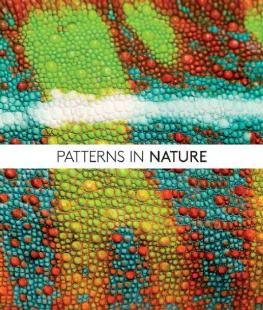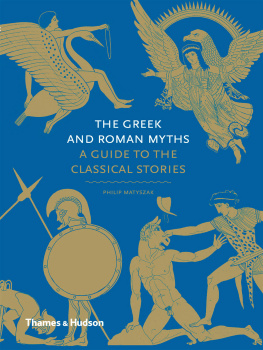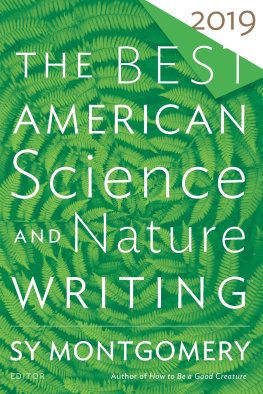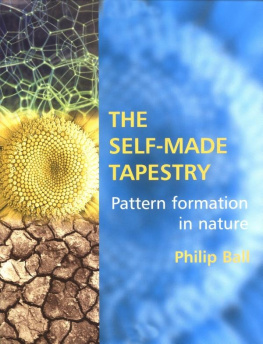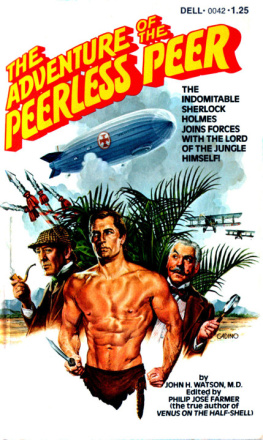Philip Ball - The Modern Myths: Adventures in the Machinery of the Popular Imagination
Here you can read online Philip Ball - The Modern Myths: Adventures in the Machinery of the Popular Imagination full text of the book (entire story) in english for free. Download pdf and epub, get meaning, cover and reviews about this ebook. year: 2021, publisher: University of Chicago Press, genre: Art. Description of the work, (preface) as well as reviews are available. Best literature library LitArk.com created for fans of good reading and offers a wide selection of genres:
Romance novel
Science fiction
Adventure
Detective
Science
History
Home and family
Prose
Art
Politics
Computer
Non-fiction
Religion
Business
Children
Humor
Choose a favorite category and find really read worthwhile books. Enjoy immersion in the world of imagination, feel the emotions of the characters or learn something new for yourself, make an fascinating discovery.
- Book:The Modern Myths: Adventures in the Machinery of the Popular Imagination
- Author:
- Publisher:University of Chicago Press
- Genre:
- Year:2021
- Rating:5 / 5
- Favourites:Add to favourites
- Your mark:
- 100
- 1
- 2
- 3
- 4
- 5
The Modern Myths: Adventures in the Machinery of the Popular Imagination: summary, description and annotation
We offer to read an annotation, description, summary or preface (depends on what the author of the book "The Modern Myths: Adventures in the Machinery of the Popular Imagination" wrote himself). If you haven't found the necessary information about the book — write in the comments, we will try to find it.
The Modern Myths: Adventures in the Machinery of the Popular Imagination — read online for free the complete book (whole text) full work
Below is the text of the book, divided by pages. System saving the place of the last page read, allows you to conveniently read the book "The Modern Myths: Adventures in the Machinery of the Popular Imagination" online for free, without having to search again every time where you left off. Put a bookmark, and you can go to the page where you finished reading at any time.
Font size:
Interval:
Bookmark:
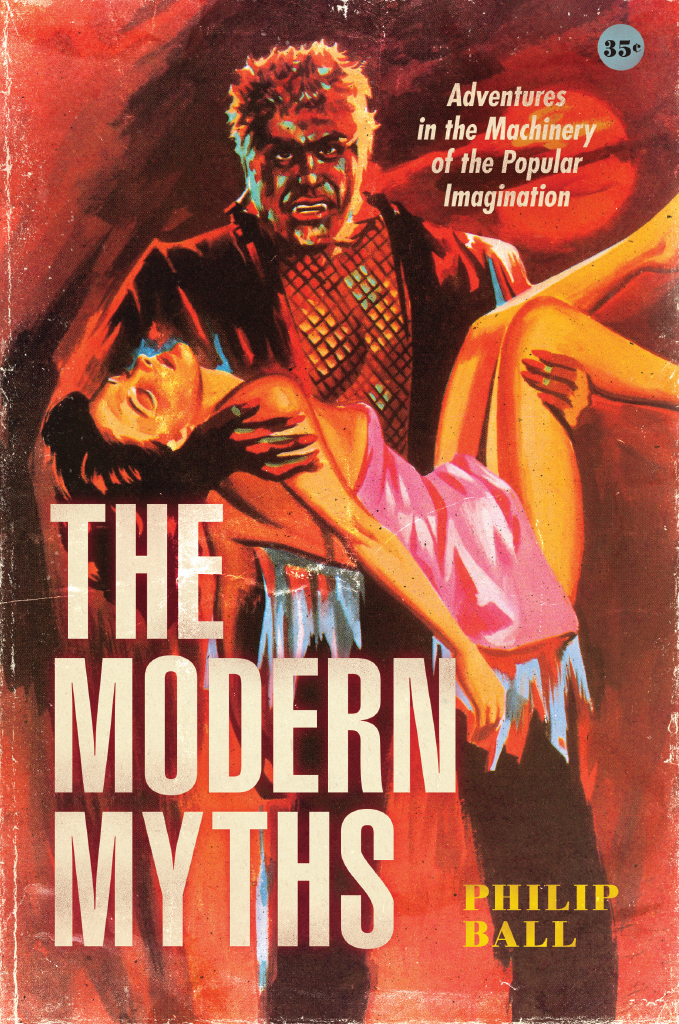
Philip Ball
The University of Chicago Press
Chicago & London
The University of Chicago Press, Chicago 60637
The University of Chicago Press, Ltd., London
2021 by Philip Ball
All rights reserved. No part of this book may be used or reproduced in any manner whatsoever without written permission, except in the case of brief quotations in critical articles and reviews. For more information, contact the University of Chicago Press, 1427 E. 60th St., Chicago, IL 60637.
Published 2021
Printed in the United States of America
30 29 28 27 26 25 24 23 22 21 1 2 3 4 5
ISBN -13: 978-0-226-71926-9 (cloth)
ISBN -13: 978-0-226-77421-3 (e-book)
DOI : https://doi.org/10.7208/chicago/9780226774213.001.0001
Library of Congress Cataloging-in-Publication Data
Names: Ball, Philip, 1962 author.
Title: The modern myths : adventures in the machinery of the popular imagination / Philip Ball.
Description: Chicago : University of Chicago Press, 2021. | Includes bibliographical references and index.
Identifiers: LCCN 2020044847 | ISBN 9780226719269 (cloth) | ISBN 9780226774213 (ebook)
Subjects: LCSH : Literature and myth. | Myth in mass media.
Classification: LCC PN 56. M 94 B 35 2021 | DDC 809/.915dc23
LC record available at https://lccn.loc.gov/2020044847
 This paper meets the requirements of ANSI/NISO Z 39.48-1992 (Permanence of Paper).
This paper meets the requirements of ANSI/NISO Z 39.48-1992 (Permanence of Paper).
Myths often do a lot of theoretical good, while they are still new.
Gilbert Ryle, The Concept of Mind
A whole volume could well be written on the myths of modern man, on the mythologies camouflaged in the plays that he enjoys, in the books that he reads. The cinema, that dream factory, takes over and employs countless mythical motifs.
Mircea Eliade, The Sacred and the Profane
Robinson Crusoe (1719)
Frankenstein (1818)
The Strange Case of Dr. Jekyll and Mr. Hyde (1886)
Dracula (1897)
The War of the Worlds (1897)
The Sherlock Holmes stories (18871927)
Batman (1939)
We can start almost anywhere, and theres no virtue in being highbrow about it. So why not with the 2004 movie Van Helsing, starring Hugh Jackman as the famous vampire-hunter? Aside from his name and calling, this youthful, dark-locked, brawny action hero has nothing in common with Draculas venerable nemesis in Bram Stokers novel. Its not only the bloodsucking count hes pursuing but a legion of monsters that includes Frankensteins creature and the brutish Mr. Hyde. We know we are in safe hands here, for Jackman and his screen lover, Kate Beckinsale, are genre stalwarts, much as Christopher Lee, Peter Cushing, Boris Karloff, and Bela Lugosi were in their day. The texture of the movie is familiar too: comic-strip gothic, lit by moonlight and bristling with razor-fanged CGI beasts, the framing and aesthetic echoing the graphic novels of Frank Miller and Alan Moore. The imagery is iconic: here is Draculas castle, much as it was in the 1931 Lugosi movie directed by Tod Browning. There is Frankensteins electrified laboratory, full of sparks and shadows, where Karloffs creature rose up in the same year. And here comes the flat-headed monster himself, his patchwork skull apt to fly open, in slapstick fashion, to reveal a sparking brain. We forgive Van Helsing for becoming a werewolf and killing his paramour; heroes these days are prone to such things.
Van Helsing is a stupendously silly homage, about as scary and unsettling as a soap opera, and I rather enjoyed it.
There doesnt, though, appear to be much we can learn about our modern myths from this sort of good-natured romp, with its relentless computer-game dynamic, cheap sentimentalism, and makeshift, Frankensteinian mosaic of motifs. Surely it does for these myths only what Ray Harryhausen did for the classical myths of Greece, turning them into a parade of cinematic effects with not a care for coherence or poetry. (I dont mean that in a bad way.)
Still, you know what Im talking about, dont you? You know what Van Helsing, in its clumsy, carefree fashion, is up to. You know that the seam it is exploiting, the language it is using, is indeed that of myth.
I hope I am not being condescending when I suspect that few among Van Helsings target audiencehormonal adolescents eager for violent action, sexy vampires, and spectaclewill have read Stokers Dracula, Mary Shelleys Frankenstein, or Robert Louis Stevensons The Strange Case of Dr. Jekyll and Mr. Hyde. These are stories that everyone knows without having to go to that trouble. They have seeped into our consciousness, replete with emblematic visuals, before we reach adulthood. I met Robinson Crusoe in a black-and-white French television series from the 1960s, in which nothing much seemed to happen save for the discovery of that momentous footprint in the sand; like many of my generation, I can hum the theme tune today. Frankenstein arrived as a glow-in-the-dark model kit of the Karloff incarnation, arms outstretched to claim his next victim. (It was not actually Frankenstein, of course, but his monster, although the box didnt tell me that.) The stingray alien craft of George Pals 1953 movie The War of the Worlds were ominous enough to distract us from the wires from which they dangled. Draculawell, he was Christopher Lee, everyone knew that.
This cultural osmosis is how we learn our modern myths. For myths are what these stories are, and to suggest (as some purists do) that the Hammer films or Hollywood adaptations traduced the real story is to miss their point. In this book I propose that the Western world has, over the past three centuries or so, produced narratives that have as authentic a claim to mythic status as the psychological dramas of Oedipus, Medea, Narcissus, and Midas and the ancient universal myths of creation, flood, redemption, and heroism.
Myths have no authors, although they must have an origin. They escape those origins (and their originators) not simply because they are constantly retold with an accumulation of mutations, appendages, and misconceptions. Rather, their creators have given body to stories for which retellings are deemed necessary. What is it in these special tales that compels us so compulsively to return to them? Each age finds different answers, and this too is in the nature of myth.
Why are we still making myths? Why do we need new myths? And what sort of stories attain this status?
In posing these questions and seeking answers, I shall need to make some bold proposals about the nature of storytelling, the condition of modernity, and the categories of literature. I dont claim that any of these suggestions is new in itself, but the notion of a modern myth can give them some focus and unity. We have been skating around that concept for many years now, and I cant help wondering if some of the reticence to acknowledge and accept it stems from puzzlement, and perhaps too a sense of unease, that Van Helsing is a part of the story. Not just that movie, but also the likes of I Was a Teenage Werewolf and Zombie Apocalypse, as well as childrens literature and detective pulp fiction, not to mention queer theory, alien abduction fantasies, video games, body horror, and artificial intelligence.
Next pageFont size:
Interval:
Bookmark:
Similar books «The Modern Myths: Adventures in the Machinery of the Popular Imagination»
Look at similar books to The Modern Myths: Adventures in the Machinery of the Popular Imagination. We have selected literature similar in name and meaning in the hope of providing readers with more options to find new, interesting, not yet read works.
Discussion, reviews of the book The Modern Myths: Adventures in the Machinery of the Popular Imagination and just readers' own opinions. Leave your comments, write what you think about the work, its meaning or the main characters. Specify what exactly you liked and what you didn't like, and why you think so.



